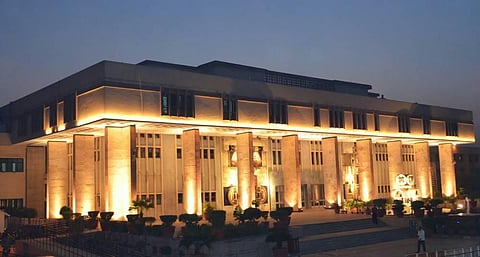

NEW DELHI: A brother cannot be a mute spectator to his divorced sister's miseries when she needs his financial help, the Delhi High Court has observed while holding that children also have a duty to take care of their aged parents during the golden days of their life.
The court's observation came while holding as "meritless" a woman's contention that her ex-husband's divorced sister cannot be held to be a dependent.
"In my opinion, this stand is meritless to the extent that in India, the bond between siblings and their dependence on each other may not always be financial but it is expected that a brother or sister will not abandon or neglect his or her sibling in time of need," Justice Swarana Kanta Sharma said, adding that Indian culture champions togetherness amongst family members.
The high court said the affection shared by family members culminates into bonds and family members are the strongest support system for each other.
"In particular, the relationship between a brother and a sister has a deep sense of care towards one another. Festivals, norms, and traditions in India are an affirmation and recognition of care, affection, and responsibility of siblings towards each other," it said.
The court, which was hearing a plea by the woman seeking enhancement of maintenance to be paid by her ex-husband, noted that the man has a 79-year-old dependent father, a divorced sister, his second wife, and a daughter to maintain.
"There is no skepticism about the fact that the sister receives maintenance from her husband, but the brother cannot be a mute spectator to her misery if and when she needs his help. Some provision needs to be made in his list of expenditures to support her sibling."
"Furthermore, it is the duty of the son/ daughter to take care of his/ her parents during the golden days of their life. The father of respondent no.2 (man) is a non-earning member of the family who should enjoy his old age seeing his family happy. Thus, to make sure that the son is able to fulfil the wishes and wants of the father during his golden years, it becomes vital to consider some amount as expenditure for looking after and well-being of his father while determining the amount of maintenance," it said.
The court said relationships cannot be caged in a mathematical formula alone in every case and each case has to be decided in view of its special and peculiar circumstances which may warrant indulgence of the court.
The court said no doubt in cases involving grant of maintenance calculation has to be made in terms of financial capacity, and the same needs to be done keeping in mind all family circumstances.
The judge said, "I am of the view that though the divorced sister can legally and morally claim maintenance from her husband, the respondent (man), at the same time, must be spending and is expected to spend some amount for his sister on special occasions and in case of any emergent need".
The court said though while apportioning the man's income, one portion cannot be apportioned to the sister, some amount as expenditure on yearly basis has to be kept aside for her as his moral obligation and the woman's plea that no amount should be considered to be spent on the divorced sister is meritless, especially in the Indian context.
The court said it is the moral and legal duty of the man to look after his father in the golden years of his life and ensure every comfort and support to him as "he is because of him" and in the absence of any proof of independent income of the father, the man must be spending some amount on looking after his father.
"The father may not have considered filing the case for maintenance before a court of law. At times, parents may feel sad and inferior even at the thought of being maintained by their child and asking for maintenance. Their love and affection for their child are so overpowering that they may decide to live uncomfortably but not ask for maintenance."
"Parents want to feel independent as they don't live with their children, their children live with them. With these thoughts in mind, I hold that the needs of the father are not many as he is staying with the respondent but a certain amount of expenditure must be apportioned for his needs," it said.
The court noted that the take-home salary of the man was Rs 35,000 per month and as his son from his first wife, the petitioner here, is a major, he has four dependents on his income, that is, he himself, his ex-wife, second wife and daughter from the second marriage, apart from some expenditure on his father and divorced sister.
"Therefore, the income would have to be divided into five shares, two shares to be allocated to the respondent as being the earning member and one share each to the remaining dependents. In view of the peculiar circumstances of this case, wherein respondent no.2 has remarried after divorce with the petitioner and has a child from the wedlock, there exists a need to strike a balance between the sensitive and delicate situation of the respondent towards the petitioner and the child from their wedlock, as well as the subsequent marriage and child," it said.
The high court enhanced the amount of maintenance to be given to the woman from Rs 6,000 to Rs 7,500 per month.